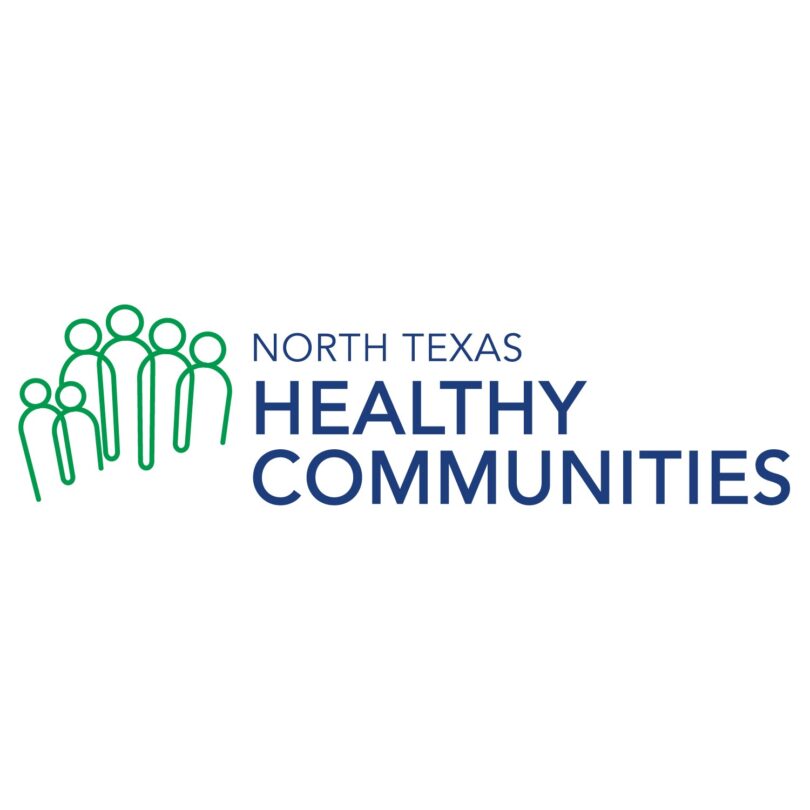Families dependent on Supplemental Nutrition Assistance Program (SNAP) benefits may be feeling the pinch since emergency allotments put in place during the pandemic ended on March 1. But a local effort to supplement SNAP benefits for the purchase of fresh produce can provide some relief, making it easier to put healthy food on the table.
Double Up Food Bucks—a national program funded locally by North Texas Healthy Communities (NTHC), an outreach arm of Texas Health Resources that implements Blue Zones Project® Fort Worth—allows SNAP recipients to double their savings on the purchase of fresh fruits and vegetables at participating farmers markets and grocery stores. Rolled out in May 2020, the program has processed nearly 50,000 Double Up Food Bucks transactions at participating locations, delivering more than $330,000 in benefits to SNAP recipients. Double Up Food Bucks is currently offered at Cowtown Farmers Market and three G.E. Foodland Fort Worth locations, with more locations on the way.
That’s good news for local families. The end to emergency funding means a loss of $95 to more than $400 a month in SNAP grocery benefits offered during the pandemic and extended until Feb. 28, 2023. The reduction in benefits is based on income, number of family members, and other factors. The move is expected to impact about 1.6 million Texas households, as Texas sees about a 35% drop in federal funding for SNAP benefits.
Double Up Food Bucks launched locally at Cowtown Farmers Market, the longest running farmers market in Fort Worth. In June 2020, the program expanded to serve SNAP recipients shopping at the Tarrant Area Food Bank’s summer Neighborhood Farmers Markets. Later that year, G.E. Foodland, a regional grocer, agreed to offer Double Up Food Bucks at its Elrod’s Cost Plus location at 1524 NW 25th St. in Fort Worth. Soon, two more G.E. Foodland stores came on board: Foodland Markets on S. Ayers Ave. in southeast Fort Worth in December 2020, and Foodland Markets on Mansfield Highway in Forest Hill in March 2021.
“Between the reduction of SNAP benefits and the rising cost of groceries, this is a challenging time for some families — and research tells us that fresh fruits and vegetables are important to our overall health and well-being,” said Matt Dufrene, North Texas Healthy Communities vice president. “Expanding Double Up Food Bucks means more families have access to those health benefits and can put healthy food on the table while freeing up income for other basic needs.”
How Double Up Food Bucks Works
Double Up Food Bucks makes healthier options more affordable at the neighborhood level, where people are accustomed to shopping. SNAP recipients receive 50% off fresh produce at participating grocery stores, up to $10 a day, simply by using their Lone Star Card and mentioning Double Up Food Bucks to the cashier. At Cowtown Farmers Market, that benefit is up to $30 a day.
“It’s really rewarding to be part of a program that allows local families to put more fresh fruits and vegetables on the table,” said Gregory Joel, manager of Opal’s Farm, which accepts SNAP benefits at Cowtown Farmers Market. “As local farmers, we understand the health benefits and appreciate that this helps make fresh, local produce more affordable and accessible to our community.”
With the reduction in SNAP benefits, Double Up Food Bucks usage at participating grocery stores is expected to increase. Fortunately, NTHC will be expanding the program later this year to even more farmers markets and farm stands across DFW, thanks to a grant from the Gus Schumacher Nutrition Incentive Program (GusNIP). NTHC and Texas Health invite additional community partners and organizations to help support and fund Double Up Food Bucks to broaden its reach and impact.
NTHC efforts to increase access to fresh produce and other healthy staples also include the Good For You Pantry program — creating food pantries with produce and other healthy staples at convenient neighborhood locations, which received a major boost from American Rescue Plan Act (ARPA) funds administered by Tarrant County — and Fresh Access, which distributes produce to Fort Worth community centers. Other initiatives involve funding and support for school gardens and urban farms. In addition, the Culled Produce Recovery Program, a partnership with local urban farms and grocery stores, gives new life to unsold produce.









